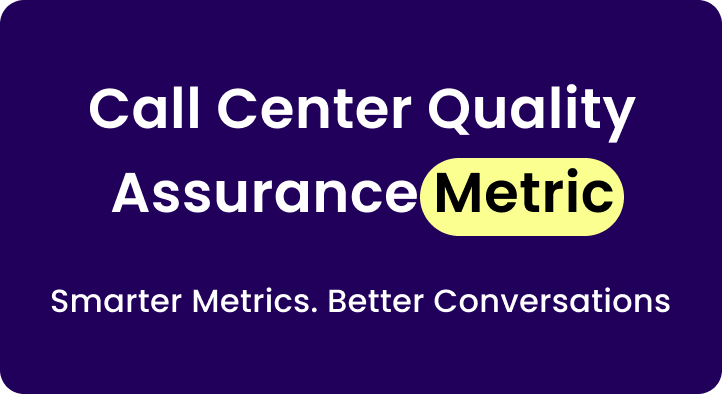Modern customers expect consistent and exceptional experiences across all touchpoints of a business.
In fact, 97% of customers say customer service is crucial for brand loyalty.
Customers are also 2.4 times more likely to stick with a brand when their problems are solved quickly.
Therefore, providing excellent customer service and outstanding customer experiences is crucial to attracting new customers and retaining loyal ones.
Top-notch customer support will allow you to unlock customer satisfaction, create brand loyalty, and propel your business towards sustainable growth.
So, how can you ensure that your call center agents deliver proactive services that convert your customers into brand advocates?
The answer lies in effective customer service coaching.
Regularly coaching your customer support team is vital if you want your organization to succeed and thrive in years to come.
With the right service excellence programs, you can teach your employees how to deal with customer complaints more effectively and build long-lasting relationships with them.
But, how can you make the most of your coaching sessions? And how can you make customer support coaching a permanent part of your company’s culture?
Don’t fret!
We’re here to guide you.
In today’s blog, we’ll discuss the nine best tips and ideas for running successful customer service coaching.
But before that, let’s explore customer service coaching, how it differs from customer service training, and its importance in your business.
A. What is customer service coaching?
Customer service coaching helps employees improve their skills to handle customer questions, solve problems, and provide better service through regular guidance, feedback, and practice.
An effective customer service coaching program includes exercises to improve your support team’s soft skills, product knowledge, conflict management, crisis resolution, interpersonal competencies, and more.
It’s not just about telling them what to do—it’s about working with them, giving them the tools, feedback, and support they need to improve and feel confident in their roles.
Some of the many goals of customer service coaching are:
- Interact effectively with customers and
- Address their needs
- Resolve their issue
- Meet their expectations
- Increase their satisfaction
Generally, these call center coaching sessions are led by a QA analyst, CX manager, or supervisor.
They work closely with each team member to help them improve their skills.
Depending on what works best, this can happen in person, right there on location, or remotely.
Whether your agents are sitting together in the office or connecting over a video call, the focus is on providing personalized feedback and support to help them grow and excel in their roles.
B. The brutal truth about bad customer service
Think about the last time you had a terrible customer service experience. Maybe you called a support line and got passed around like a hot potato. Or perhaps a chatbot gave you generic, unhelpful responses. Frustrating, right? Now flip the script—imagine your business is the one delivering that poor service. Not a good look.
Here’s the hard reality: Bad customer service costs businesses over $75 billion annually due to lost customers, according to a study by NewVoiceMedia. And here’s another fact—96% of customers say good customer service influences their brand loyalty (Forbes). So, if your team isn’t performing at its best, you’re leaving money on the table.
But it’s not just about business losses. Untrained or under-coached agents suffer, too. High stress, low confidence, and job dissatisfaction are direct results of poor customer service coaching. And when agents are unhappy, turnover rates skyrocket—costing you even more money in recruitment and training.
So, what’s the solution? Customer service coaching. Not just training, but real, structured coaching that turns average agents into top performers. Let’s talk about why traditional methods fail and how you can make coaching work.
C. Why training falls short
Most companies already have some form of customer service training. But here’s the problem—one-time training doesn’t work.
- 70% of employees forget what they learned within a day if there’s no follow-up (ATD Research).
- 87% of customer service agents say they need more training to handle complex issues effectively (CCW Digital).
- Lack of coaching contributes to 30-45% turnover rates in customer service roles (Gallup).
So, what’s going wrong?
- One and Done Training – A single onboarding session isn’t enough. It’s like expecting someone to become a top chef after watching one cooking show.
- No Real-Time Feedback – Many agents don’t get feedback until their performance review, which is too late to course correct.
- Scripts over Problem-Solving – Agents are often trained to memorize scripts instead of learning how to think critically and empathize with customers.
- Ignoring Soft Skills – Technical knowledge is important, but without communication, active listening, and emotional intelligence, even the most knowledgeable agent will fail.
Clearly, a different approach is needed. That’s where structured customer service coaching comes in.
D. How to build a customer service coaching program
A good coaching program isn’t just about training—it’s about ongoing development, real time feedback, and practical skill building. Let’s break it down into actionable steps.
1. Set Clear Performance Metrics
Before you start coaching you need to have a clear understanding of what success looks like. Use measurable KPIs such as:
- Customer Satisfaction Score (CSAT) – Are customers happy with the service?
- First Contact Resolution (FCR) – Are agents resolving issues on the first try?
- Average Handle Time (AHT) – Are calls or chats being handled efficiently?
- Employee Engagement Score – Are agents motivated and satisfied with their role?
2. Use Real Call Examples for Feedback
One of the best ways to improve agent performance is through real call analysis. Tools like Enthu.ai’s call monitoring software enable managers to:
- Identify trends in customer interactions.
- Pinpoint specific areas where agents struggle (tone, product knowledge, response time, etc.).
- Provide targeted coaching based on actual conversations.
3. Shift from Training to Continuous Coaching
Instead of a one time training event, implement ongoing coaching sessions:
- Daily Micro-Coaching – Quick 5 minute refreshers on common issues.
- Weekly Call Reviews – Break down a few real customer interactions together.
- Monthly Skill Workshops – Deep dive into soft skills like handling difficult customers or de-escalation techniques.
4. Create a Feedback-Driven Culture
Top-performing customer service teams have one thing in common— open two way feedback loops. Encourage:
- Peer Reviews – Let agents review each other’s calls in a constructive way.
- Self-Assessment – Have agents listen to their own calls and identify areas for improvement.
5. Practice with Role-Playing and Live Scenarios
Reading about customer service is one thing—practicing it in a controlled setting is another. Role-plays help agents:
- Build confidence in handling tough situations.
- Develop problem-solving skills.
- Get comfortable with positive language and de-escalation techniques.
6. Use Technology for Better Coaching
The best teams aren’t just relying on managers—they’re using AI-driven insights to automate performance analysis and make coaching more effective.
Although customer service training and coaching are often used interchangeably, they are actually quite different. So, while training gets you started and ensures everyone is on the same page, coaching is about taking those skills and refining them over time. It’s like learning to play a musical instrument—you might start with a beginner’s group class to learn the basics of playing notes and simple songs but to truly excel, you need regular, personalized lessons with a teacher who can give you specific feedback and help you refine your technique and expression. Aspect Customer Service Training Participants One trainer instructs many agents. One coach works with one agent. Goal Provides new knowledge and skills to build foundational competencies Method Structured and systematic Informal and conversational Customization Standard approach for everyone Personalized to the individual Focus Emphasizes initial learning Concentrates on ongoing development Duration Typically a one-time event or short-term Continuous and ongoing 62% of businesses experienced an increase in customer satisfaction after implementing a coaching program. There are several reasons why you should invest in customer service coaching. Coaching in customer support helps you: Happy customers are more likely to continue doing business with you and recommend your services to others. Coaching helps your team develop and refine their skills, which translates to improved interactions with customers. When your agents are better trained, they can address customer issues more effectively and provide a more positive experience. This leads to higher customer satisfaction, crucial for retaining clients and fostering loyalty. While training provides essential knowledge, conflict resolution training, and coaching focuses on helping your team apply that knowledge in real-life situations. Training sessions might teach the theoretical aspects of customer service, but coaching ensures that agents can implement those lessons during actual customer interactions. This practical application helps bridge the gap between knowing what to do and executing it proficiently, leading to more consistent and effective customer service. Coaching provides an opportunity to set clear, achievable goals for your team. It ensures that everyone understands what success looks like and how they can contribute to it. By defining specific, measurable objectives, coaching helps keep your team focused and aligned with the overall business goals. This clarity reduces confusion and helps team members understand how their individual efforts contribute to their success. Investing in coaching shows your team that you care about their development and growth. Agents who receive personalized guidance and support become more skilled and confident in their roles. This increased competence often leads to greater job satisfaction, as employees feel more capable and valued. Moreover, satisfied employees are less likely to leave, which reduces turnover and the associated costs of hiring and training new staff. Coaching often involves group sessions where team members can collaborate, share insights, and learn from each other. This collaborative environment helps build strong relationships and improves communication within the team. When agents work together and support one another, they become more effective as a unit, leading to better overall performance and a more cohesive team. Coaching identifies individual skill gaps and provides tailored guidance to address them. This personalized approach helps agents become more efficient and handle customer interactions more swiftly and accurately. Enhanced efficiency not only improves service quality but also increases productivity. It allows your team to manage more cases effectively and reduce resolution times. Outstanding customer service, driven by effective coaching, enhances your brand’s reputation. When customers consistently receive excellent service, they are likelier to share positive feedback and recommend your brand to others. In a competitive market, this positive word-of-mouth can set you apart from your competitors and strengthen your brand’s image. This can attract new customers and retain existing ones. So, you understand the importance of customer service. That is great. Before creating a coaching program for your support team, it is essential to carefully plan and consider your organization’s needs and goals. Mapping out your coaching plan in advance helps you align on goals, hold yourself accountable, and get the most out of coaching. Follow these 9 tips to implement an effective customer service coaching program and strengthen your agents. Start by defining clear, measurable goals for your coaching program. These could be improving customer satisfaction scores, reducing call handling time, or increasing first-call resolution rates. Measurable goals give you and your team a target to aim for and a way to track progress. Make sure these goals align with your organization’s broader objectives to ensure that the coaching efforts contribute directly to the company’s success. The coach you choose plays a critical role in your program’s success. Look for someone with a deep understanding of customer service, excellent communication skills effective communication training, and the ability to inspire and motivate your team. The right coach will connect with your agents on a personal level, understand their challenges, and provide tailored guidance that drives improvement. A great coach is not just a teacher but a mentor who can help your team grow and thrive. A quality assurance program is essential for maintaining and improving service quality. By regularly monitoring calls and customer interaction skills, you can identify areas where agents excel and where they need improvement. AI-enabled quality assurance software such as Enthu.AI can make your task easier. Its speech analytics and call monitoring and recording features enable you to extract meaning from audio recordings and analyze that data for relevant and meaningful business intelligence. This data-driven approach ensures that your coaching is focused on the areas that matter most. QA programs also help set consistent standards across your team, ensuring that every customer receives the same high level of service. Coaching isn’t a one-time event; it’s an ongoing process. Regular coaching sessions allow you to provide continuous support, reinforce learning, and address new challenges as they arise. These sessions don’t have to be long or formal; even brief, focused conversations can have a big impact. The key is consistency—regular touchpoints keep your agents on track and help maintain momentum. AI-powered Sales coaching tools such as Enthu.AI can supercharge your program by providing insights and recommendations that are tailored to each agent’s performance. These tools can analyze customer interactions, identify patterns, and suggest areas for improvement. They can also track progress over time, giving you a clear picture of how your agents are developing. By integrating AI into your coaching, you can make your program more efficient, data-driven, and impactful. Feedback is a two-way street. While providing feedback to your agents is important, it’s equally crucial to gather their input on the coaching process. This helps you understand their perspective, address their concerns, and make adjustments that improve the program’s effectiveness. Creating a culture of open communication encourages agents to take ownership of their development and fosters a more collaborative and supportive work environment. Monitoring your agents’ progress over time is crucial for measuring the impact of your coaching program. Use performance & sales coaching metrics and regular check-ins to assess how well your agents are applying what they’ve learned. This helps you identify who’s excelling, who needs more support, and how the overall team is improving. Tracking progress also allows you to adjust your coaching approach as needed to ensure continuous development. Coaching doesn’t have to be all business—it can be enjoyable, too! To make the process more engaging, incorporate interactive elements like role-playing, games, or friendly competitions. When coaching is fun, agents are more likely to be enthusiastic and participate actively. An enjoyable coaching environment also fosters a positive team spirit, making learning and development something to look forward to rather than a chore. Recognition goes a long way in motivating your team. Make it a point to celebrate individual and team successes, whether it’s meeting a specific goal or showing significant improvement. A simple shoutout in a team meeting, a personalized note, or even small rewards can make your agents feel valued and appreciated. Celebrating achievements boosts morale and reinforces positive behaviors, encouraging agents to keep striving for excellence. Coaching your customer service agents is key to delivering a better customer experience and keeping loyal customers. Without clear, specific coaching goals, your agents may struggle to understand where they need to improve or how they can contribute to your mission of providing top-notch service. By setting these goals, you give your team the direction they need to succeed, helping them align with your company’s vision of excellence in customer care. At Enthu.AI, we empower your customer service coaching by leveraging AI and conversation analytics to make the process faster and more effective. We surface key moments in calls that need attention, allowing you to coach your agent performance improvement precisely when it matters most. We provide instant feedback tools so you can guide your agents in real time, helping them improve on the spot. We also offer features like custom playlists from top-performing calls, enabling new agents to learn quickly and efficiently. Plus, we track your agents’ progress over time, giving you valuable insights to tailor your coaching strategies. 1. What is a coaching model for customer service? A coaching model for customer service is a structured approach to guide agents in improving their skills, focusing on setting clear goals, providing actionable feedback, and tracking progress over time to enhance overall performance. 2. How to do proper coaching in BPO? To coach effectively in a BPO, set specific, measurable goals, provide regular feedback, and use real-life call examples for practical learning. Focus on continuous improvement and tailor your coaching to each agent’s needs. 3. How to be a good customer service coach? To be a good customer service coach, listen actively, offer constructive feedback, and inspire your agents to grow. Be patient, approachable, and always aim to build their confidence and skills.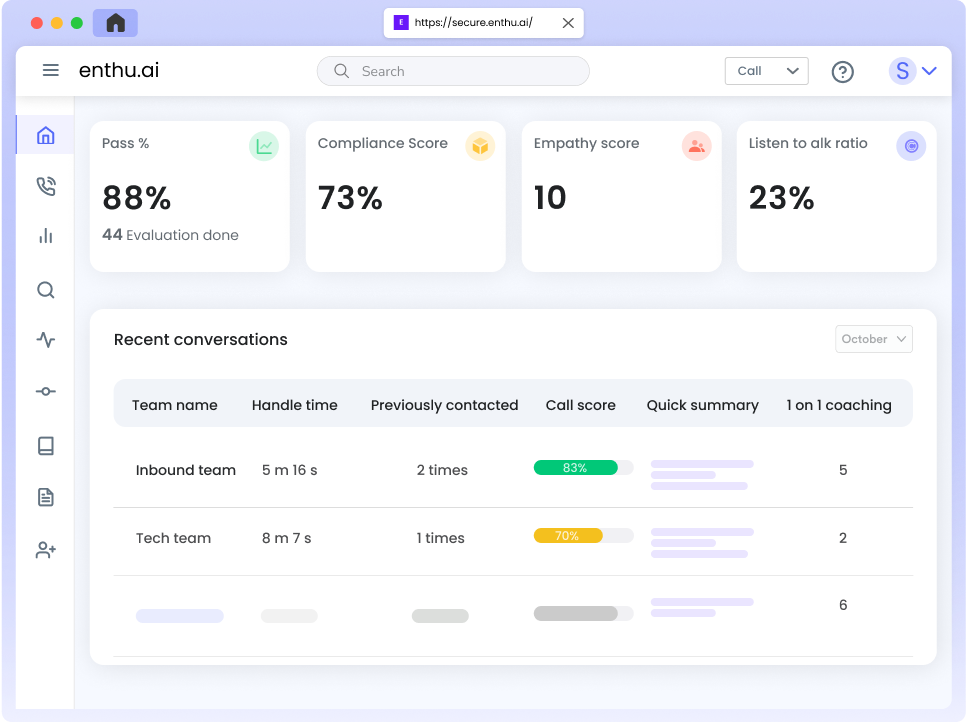
E. Customer service training vs. customer service coaching
Customer Service Coaching Refines existing skills and knowledge to improve service F. Importance of customer service coaching?
1. Provide better customer service
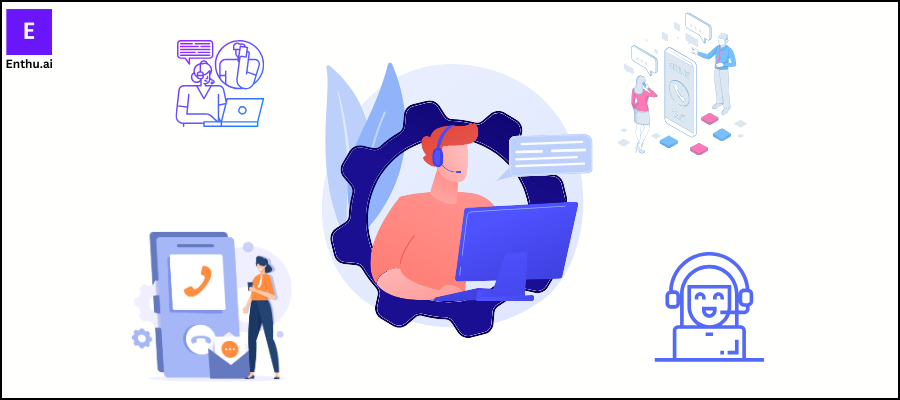
2. Apply knowledge in real-life situations
3. Set achievable goals

4. Improve employee satisfaction
5. Build stronger teamwork

6. Increase efficiency
7. Enhanced brand reputation

G. 9 best tips for customer service coaching
1. Set measurable goals and objectives

2. Choose the right coach
3. Implement a quality assurance (QA) program
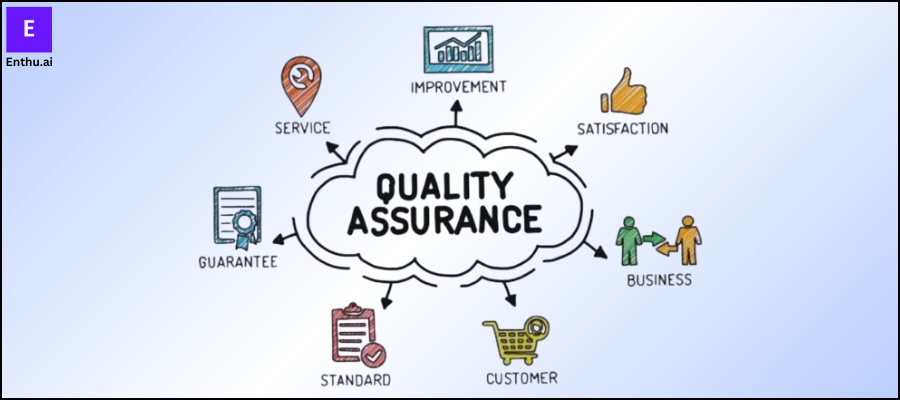
4. Conduct regular coaching sessions
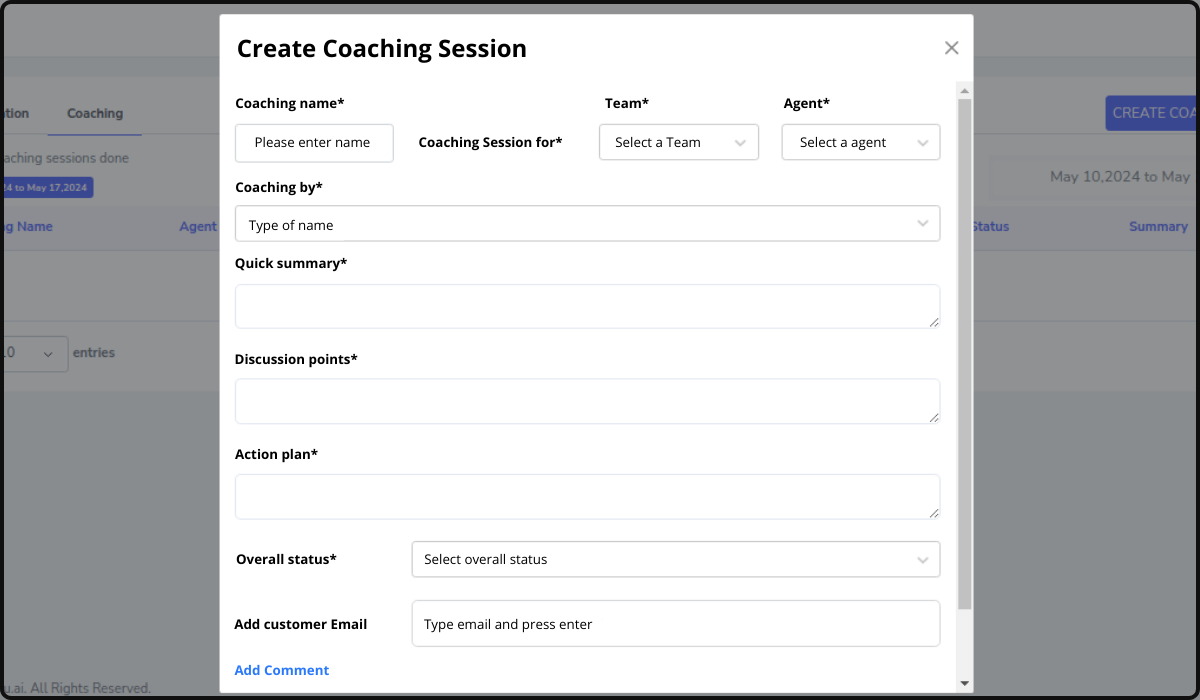
5. Leverage AI-powered agent coaching software
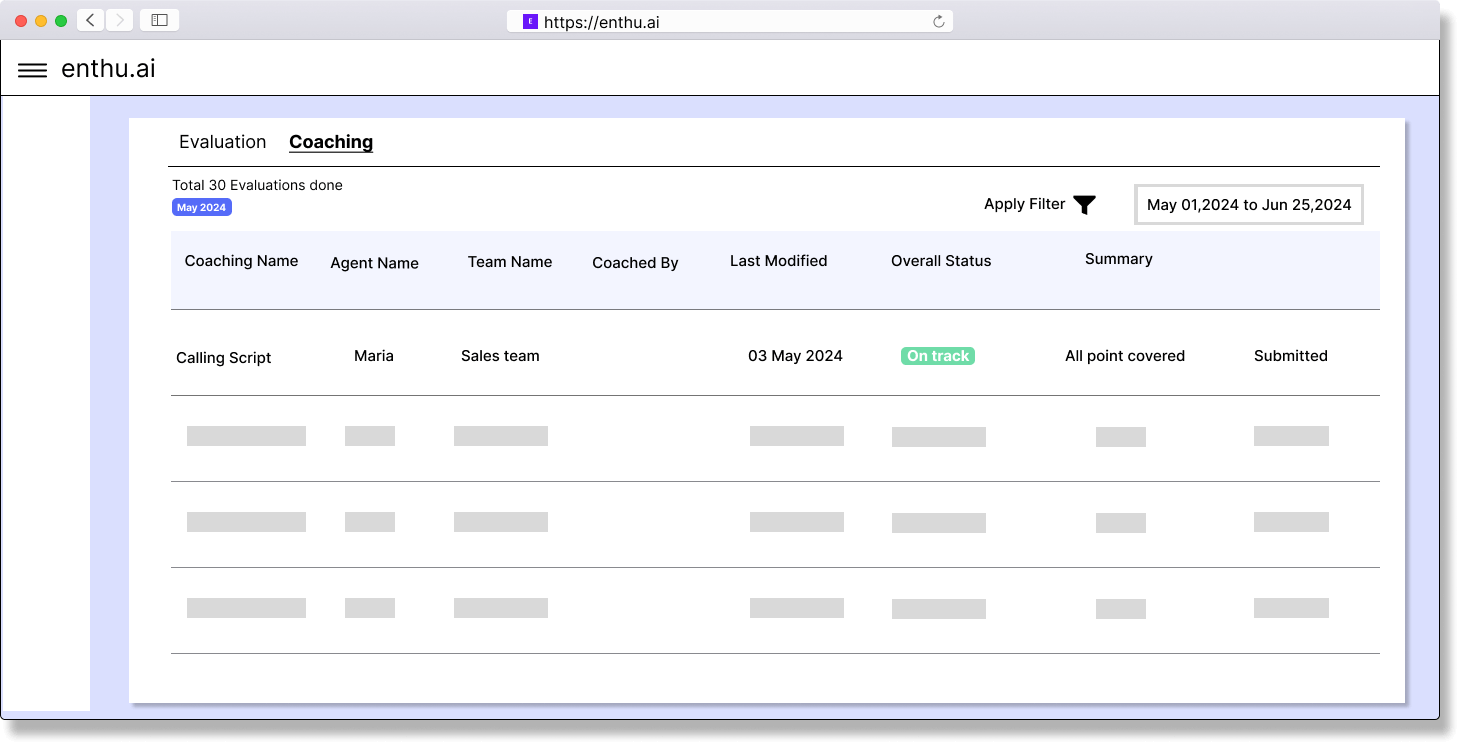
6. Incorporate feedback mechanisms
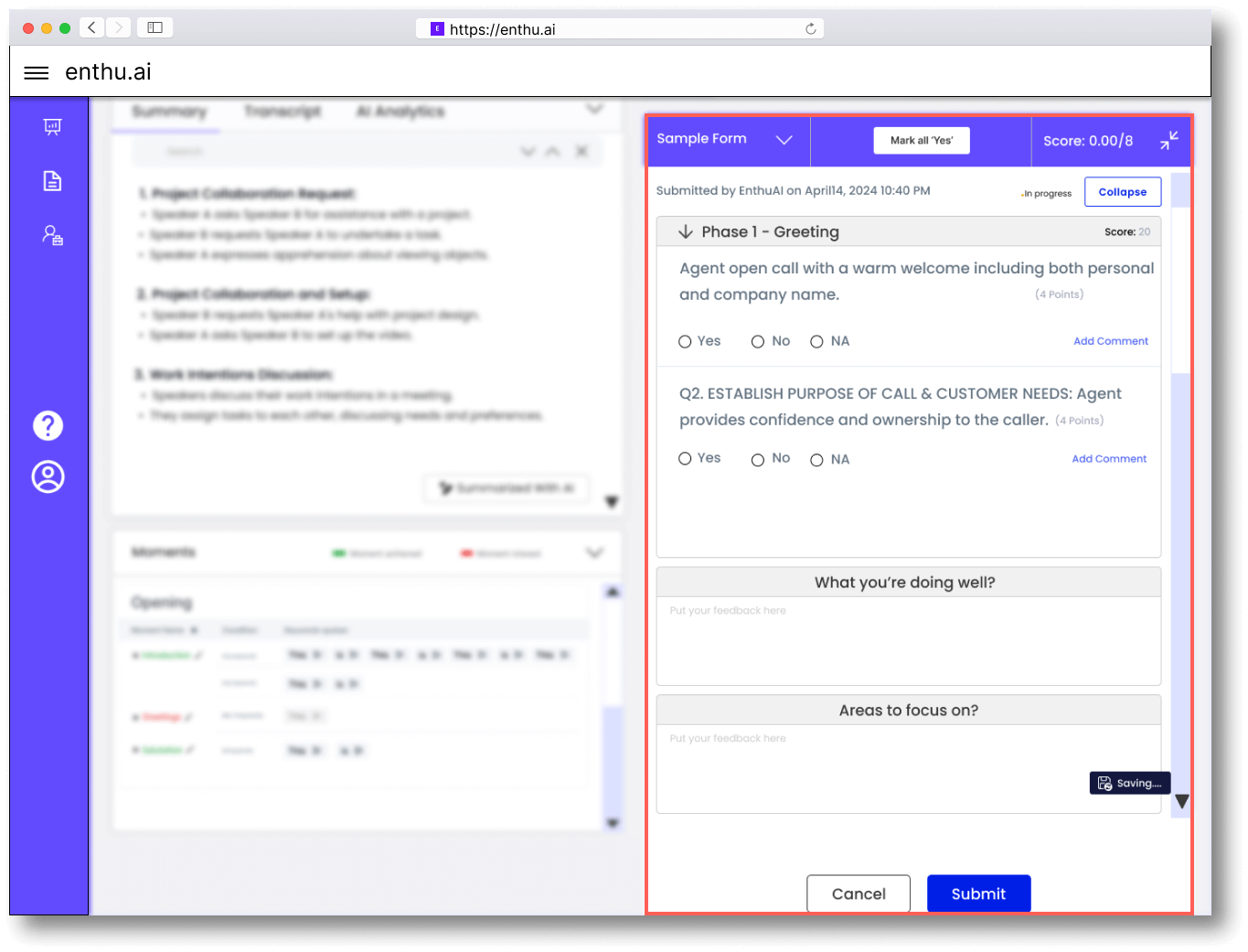
7. Track agent progress over time
8. Make coaching engaging and fun
9. Celebrate success and recognize achievements
Conclusion
FAQs
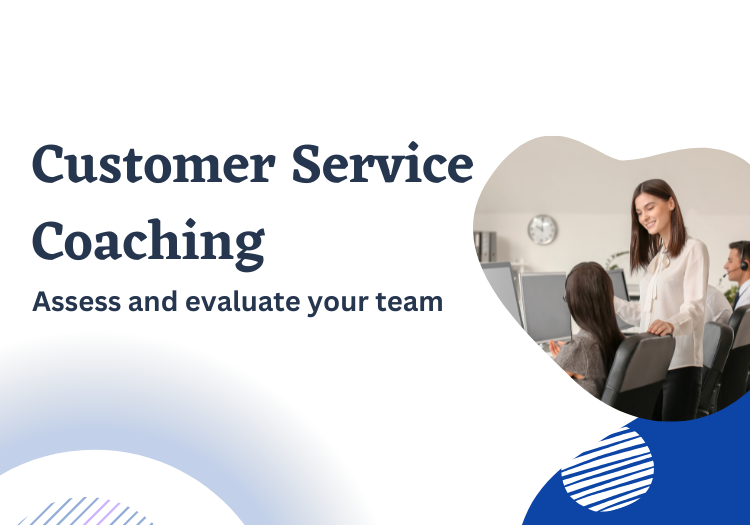



 On this page
On this page